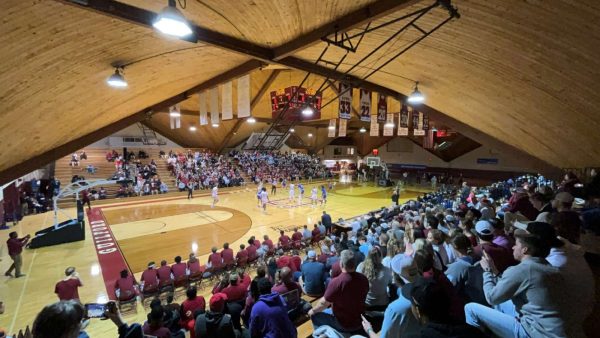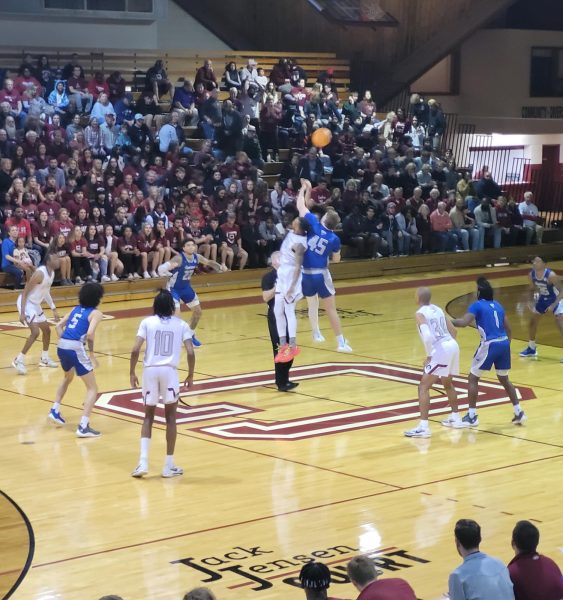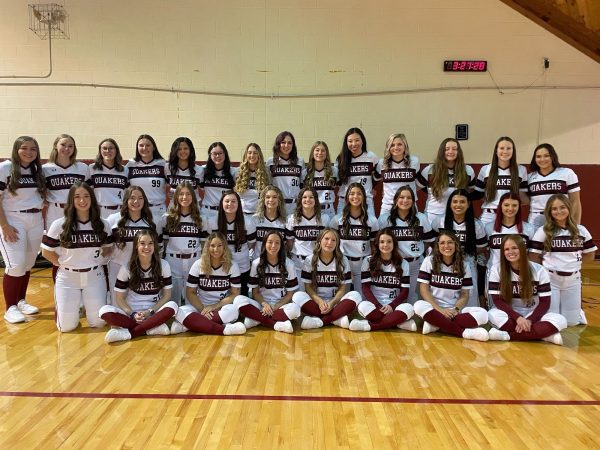Preconceived notions create student divides
If you are new here or live under a rock, let me fill you in — many students on campus feel that we live in a divided community, split between athletes and non-athletes.
Say you are an athlete finding a place to eat in the cafeteria, God forbid you go sit up by the windows. And if you are a non-athlete looking for a place to eat, God forbid you sit at one of those huge tables in the center.
It is as if there is this unspoken rule at Guilford that the windows are where non-athletes go to enjoy their vegan salads with tofu and the center region is where athletes go to enjoy their chicken and rice with potatoes.
Why does that happen? Are we truly a divided community, or is that just where we want to sit, no big deal? Is that divide so blatantly obvious just in the cafeteria?
After interviewing a variety of people, I find it obvious that we are at least divided on whether or not it is an issue.
“There’s not a whole lot of non-athletes who feel they can relate or get along with athletes,” said junior Peter Cathcart. “(Non-athletes) came here for the college experience, and athletes came here to play a sport.”
“I notice there’s always a lot of talk about (the divide), but I don’t think there’s as much as a divide as people think,” said senior lacrosse player Andy McDonagh. “I think you should hang out with your teammates a lot and get a closer bond with them but I don’t think that means there’s a divide between people.”
So why is there this divide between opinions? It could be because the ratio of athletes to non-athletes is higher, so non-athletes are more aware and affected by it, or it could be due to people’s inability to see past pre-judgments and stereotypes — who really knows?
One thing I think we all know is that people may tend to carry around this assumption that athletes are just dumb jocks who came here strictly to play a sport and to ride out that fond memory of their mediocre high school career, while non-athletes are all hippie artsy freaks who do not do anything other than smoke weed and be overly sensitive to everything.
“There’s a lack of understanding between the different parties,” said senior volleyball player Kelsey Ruehling. “We’re human and we make judgments about people.“
Those judgments can carry further than people realize. It is an individual decision to judge someone by what they wear or what they do, and in a group setting where judgment of a type of person is part of conversation, isolation is inevitable for both groups.
Judgment is a part of human nature and it is something that each of us does every day, but should we strive to break that at our school, or just let the inevitable happen?
“We have a deep commitment to try to have a community that doesn’t allow divides to keep us away from one another,” said Charles A. Dana Professor of Psychology Richie Zweigenhaft. “The Quakerism enters in in that way, wanting to overcome what’s maybe inevitable.”
The school is inevitably undergoing changes and moving in a new direction, one that culturally may seem less Quaker-ly as compared to the past.
“I think it is interesting that press and that push to preserve our Quaker values, while still, we are a business and there’s a number of quota students that we need to get each year,” said Ruehling, “How do you retain the authenticity of that, and how do we attract students, whether they’re athletes or non-athletes, to Guilford while we’re trying to build that community?”
We as individual students should branch out in our community. My first two years here were swallowed by a relationship I had with a student-athlete and my choice to spend all of my time around him and his teammates. Looking back there was definitely an isolation between my athlete friends and my non-athlete friends, and between that I became isolated as well.
There is a divide amongst our community, and recognizing is the first step to lessening it.
“One of our main values is community, and it is hurting right now” said first-year soccer player Nicole Karukas. “If we plan to be successful as a college we need to be united.”






Madicke Diop • Sep 27, 2015 at 10:12 pm
Insightful article, saying what everyone sees and thinks but isn’t discussed often enough.
This writer seems pretty dope